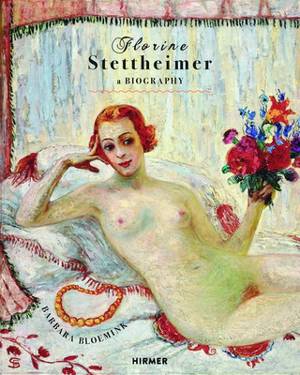
- Afhalen na 1 uur in een winkel met voorraad
- Gratis thuislevering in België vanaf € 30
- Ruim aanbod met 7 miljoen producten
- Afhalen na 1 uur in een winkel met voorraad
- Gratis thuislevering in België vanaf € 30
- Ruim aanbod met 7 miljoen producten
Zoeken
Omschrijving
Lauded by the New Yorker as one of "The Best Books of 2022 So Far," this comprehensive biography establishes Florine Stettheimer as one of the most innovative artists of the early twentieth century. Florine Stettheimer was a feminist, multi-media artist who documented New York City's growth as the center of cultural life, finance, and entertainment between the World Wars. During her first forty years, spent mostly in Europe, Florine Stettheimer studied academic painting and was aware of the earliest modernist styles prior to most American artists. Returning to New York, she and her sisters led an acclaimed salon for major avant-garde cultural figures including Marcel Duchamp, the Stieglitz circle, and numerous poets, dancers, and writers. During her life, Stettheimer showed her innovative paintings in more than forty of the most important museum exhibits and salons. She also wrote poetry, designed unique furniture, and gained international fame for the sets and costumes she created for the avant-garde opera, Four Saints in Three Acts. Stettheimer's work was also socially progressive: she painted several identity-issue paintings, addressing African American segregation, Jewish bigotry, fluid sexuality, and women's new independence. This biography presents one of the first comprehensive readings of Stettheimer's art. Barbara Bloemink establishes Stettheimer's place as one of the twentieth century's most significant and progressive artists and examines why her unique work remains relevant today.
Specificaties
Betrokkenen
- Auteur(s):
- Uitgeverij:
Inhoud
- Aantal bladzijden:
- 432
- Taal:
- Engels
Eigenschappen
- Productcode (EAN):
- 9783777438344
- Verschijningsdatum:
- 1/02/2022
- Uitvoering:
- Hardcover
- Formaat:
- Genaaid
- Afmetingen:
- 198 mm x 258 mm
- Gewicht:
- 1746 g

Alleen bij Standaard Boekhandel
+ 62 punten op je klantenkaart van Standaard Boekhandel
Beoordelingen
We publiceren alleen reviews die voldoen aan de voorwaarden voor reviews. Bekijk onze voorwaarden voor reviews.











